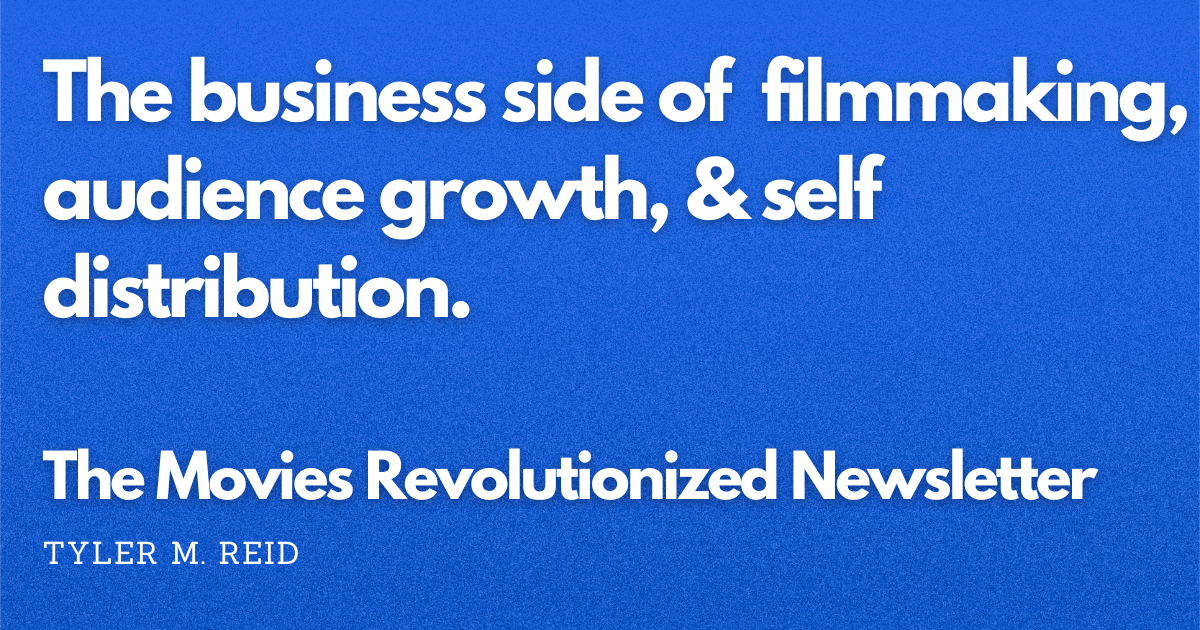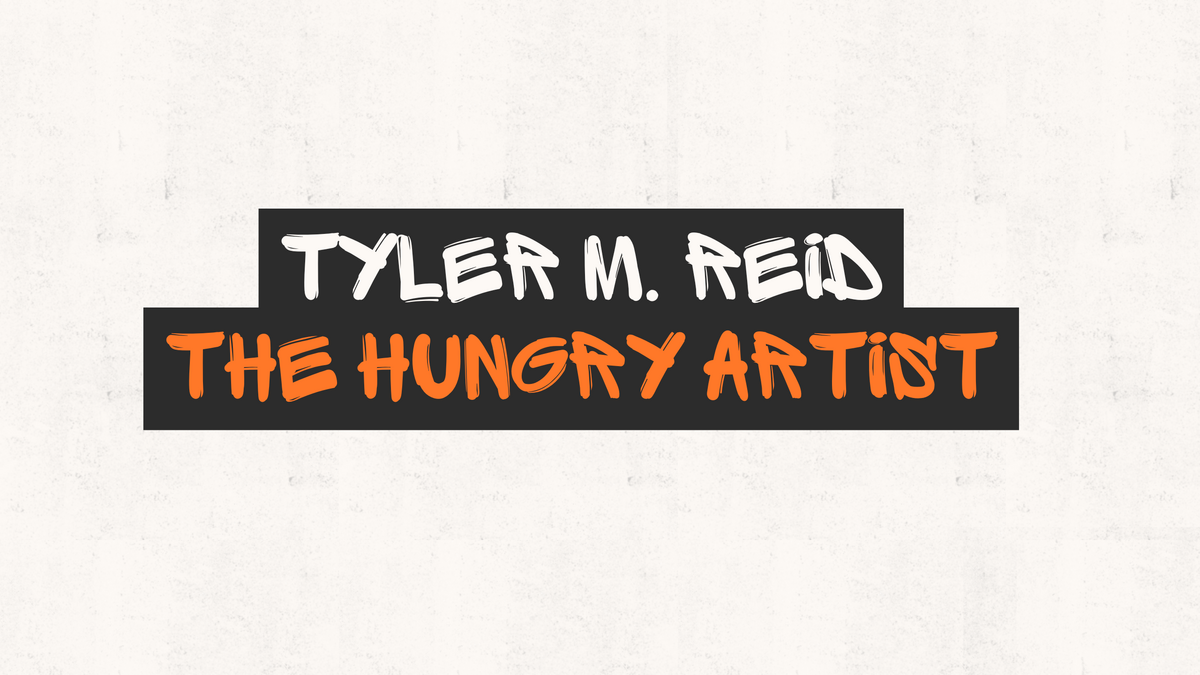Finding Soft and Hard Money for Your Indie Film With Sponsors
You always have to get creative when finding money to produce your film, especially on the micro indie level and when you have only a couple or no connections to private investors. One of those creative ways is through sponsorships, both on the local level and through the national level (though the national level is by far the hardest).
On top of that though, there are a couple ways to look at sponsorship. You can seek out sponsors through soft money or hard money, and maybe if you are lucky a bit of both from one sponsor.
Understanding Soft Money and Hard Money Sponsorships
Soft Money: Soft money refers to non-cash contributions that can significantly reduce your production costs. Local businesses can provide valuable in-kind support. For example:
Restaurants: Sponsoring meals for the cast and crew during filming.
Airlines: Offering free flights for location shoots.
Hotels: Providing accommodation for your team.
Equipment Rentals: Local rental companies providing camera gear, lighting, or sound equipment.
The best way to find companies for Soft Money or In Kind sponsorship would be to go through each department of the film and look at all the items you need. From the art department to wardrobe to hair and make-up. Then look at all the various businesses in your city and figure out if they offer anything that could help in your production. A local hardware store may give you a large discount or even a certain amount of in store credit. Those supplies can be used by the art department.
Go through the full script and each department, making a list of every item that could be used for making the film and determining if there is a local store that can help.
Hard Money: Hard money involves direct financial contributions. These sponsors receive recognition and promotion in return, which can take various forms.
Before we dive into that. For most filmmakers, it is probably best to just focus on local businesses. National businesses are probably going to require a lot of material from you to determine if it is worth it to them to sponsor your film with cash.
Going local first has a few main benefits.
- You have the ability to meet in person, which helps to sell your vision.
- Local businesses are more inclined to help local creatives and a film being made locally.
- It gives you practice before going to larger national companies.
What can you offer a local business for sponsoring your film with actual cash?
Local Businesses: Contributing funds in exchange for credit in the film, social media mentions, or attendance at the premiere. You can even offer them a "5-10 second commercial at the beginning of the film, depending on your distribution strategy. At the minimum if you do local screenings, you can definitely offer this.
Your sell to them is that they are helping a local community of filmmakers to make a film which builds strong local support for the business. Also, the exposure you can give the local business helps drive traffic and awareness to their company. Those are two huge benefits in sponsoring your film.
Let’s look at a couple examples:
Faith-Based Organizations: For a faith-themed film, churches or religious groups may sponsor in exchange for recognition and community engagement.
Sports Companies: For sports-related films, local sports teams, athletic gear companies, or gyms can offer sponsorship in return for brand exposure.
You can even go as far as setting it up in a way that content creators on YouTube do: This film was made possible by or sponsored by COMPANY.
Creative Sponsorship Ideas
Think outside the box when approaching potential sponsors. Here are some innovative ways sponsors can contribute:
Product Placement: Integrate the sponsor's products or services naturally into your film. For example, a local coffee shop could have their branding visible in scenes.
Event Sponsorship: Have sponsors support your film’s premiere or a promotional event, gaining visibility in the process.
Service Sponsorship: Local gyms, cafes, or transportation companies can offer their services to your cast and crew.
Exclusive Screening Events: Sponsors can host exclusive screenings for their customers or employees, providing them with a unique experience.
What to Include in Your Sponsorship Pitch Deck
This is why local is the best first way to go. You can actually pitch this concept to them in person. For many of these businesses this is going to be an entirely new concept to them. Coming with a strong pitch and welcoming personality will entice them to really consider sponsoring your film.
Here are some time to include in the sponsor pitch deck:
Introduction: Briefly introduce yourself and your film project.
Synopsis: A captivating summary of your film’s plot.
Target Audience: Data on who will watch your film and why.
Marketing Plan: Outline how you plan to promote the film and involve sponsors.
Benefits for Sponsors: Clearly detail the exposure and benefits sponsors will receive, such as logos in credits, product placements, and exclusive event invites.
Budget Breakdown: Show how their contributions will be used effectively.
The goal is to answer as many questions as you can before they even ask them. However, keep the pitch simple and short, you don’t want to lose them with too much information or confused them.
Determining Sponsorship Amounts
You also want to have a very strong idea of how much hard money to ask for and why.
When figuring out how much to ask for, consider:
Production Costs: Calculate your overall budget and determine the specific areas where sponsorships can make a difference.
Sponsor Size: Align your ask with the sponsor’s capacity. A small local business may contribute $500-$1,000, while a larger regional company might offer $5,000-$10,000.
Value Offered: Ensure the benefits you offer in return justify the amount you're asking for. Visibility and engagement should match the sponsor's investment.
Reaching Out to Sponsors
Now that you have all that you have done your research and you have all your material ready to go, it’s time to reach out and set up meetings.
Local Sponsors:
Research: Identify local businesses that align with your film’s themes or your target audience.
Personal Touch: Visit in person or make a phone call to introduce yourself and your project.
Community Focus: Emphasize the local impact of supporting an indie film.
National Sponsors:
Professionalism: Send well-crafted emails and follow up with phone calls.
Networking: Use industry events and social media to make connections.
Tailored Proposals: Customize your pitch to align with each sponsor’s brand values and marketing goals.
Content-Aligned Sponsors:
I put together a big list of ideas for sponsors locally that could align with the content of your film. Many of these ideas may overlap.
Faith-Based Films: Approach religious organizations, faith-based retailers, or family-friendly brands.
Sports-Related Films: Target local sports teams, sporting goods stores, gyms, and health-focused brands.
Environmental Films:
Local Eco-Friendly Stores: Approach local businesses that specialize in sustainable products, eco-friendly cleaning supplies, or organic groceries.
Farmer's Markets: Partner with local farmers' markets that emphasize sustainability and environmental consciousness.
Historical Films:
Local Historical Societies: Approach historical societies or heritage organizations in your community.
Antique Shops: Partner with local antique stores that specialize in historical artifacts or memorabilia.
Science Fiction Films:
Local Tech Startups: Approach technology startups or small tech companies that innovate in futuristic technologies.
Comic Book Stores: Partner with local comic book stores that cater to science fiction enthusiasts.
Documentary Films:
Independent Bookstores: Approach local bookstores that focus on non-fiction books or documentaries.
Art Galleries: Partner with local art galleries that feature documentary photography or exhibitions.
Animation Films (Family-Oriented):
Family-Owned Restaurants: Approach local restaurants or cafes that are family-friendly and cater to children.
Toy Stores: Partner with local toy stores that sell educational toys or games for children.
Comedy Films:
Local Comedy Clubs: Approach comedy clubs or small theaters that host comedy performances.
Independent Coffee Shops: Partner with local coffee shops known for their relaxed atmosphere and community engagement.
Drama Films:
Community Health Centers: Approach local health centers or clinics that provide mental health services.
Yoga Studios: Partner with local yoga studios that promote mental well-being and mindfulness.
Music-Driven Films:
Independent Record Stores: Approach local record stores that specialize in a diverse range of music genres.
Music Schools: Partner with local music schools or academies that offer lessons and workshops.
There is Money to be Gained and Money to be Saved
Finding funding through sponsorships requires creativity, persistence, and strategic thinking. By combining soft and hard money contributions from both local and national sponsors, you can secure the resources needed to bring you projects to life. With a well-prepared pitch and a clear understanding of the mutual benefits, you can unlock new avenues of support for your film.
If your goal is to make your film for $200,000, just by taking the above routes, it’s possible to secure financing for 25% of your film or $50,000, in both soft and hard money just from sponsors.
That’s what financing a film is about, looking at all the possible routes to get your film funded, from sponsors, grants, crowdfunding, and private investors. The best path is to try to get funding from EACH of those areas.
In the past I have written on other ideas of how to get money for your film or from your current film to help fund your next film.
There are two ways I can help you.
I give away a free bundle with example pitches, templates, and interactive budgets that you can grab right here.
If you are on your journey to make your first short film, documentary, or even micro budget feature, this course is designed to help you find money, grow your audience, and earn an income.


